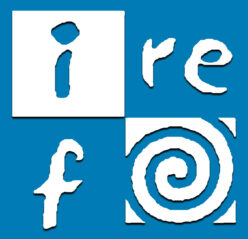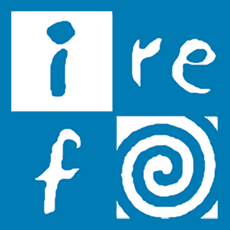Teacher Training
Teacher Training as a Functional Concern
Certainly the role of the teacher is extremely important in an educational project like P4C, because it requires that the teachers have a special attitude. We become completely nvolved in non-directive practice where inter-student cooperation is fostered and the ‘all-knowing’ figure of the teacher is substituted by the teacher as facilitator, guide, collaborator and thinker in their own right. The role of informative authority is abandoned.
“The teaching of Philosophy requires that teachers are prepared to examine ideas to investigate through dialogue and to respect the spirit of the children who are learning.”(M. Lipman, Philosophy goes to school)
Our teacher training programme is the fruit of the experience of all these years, is neither fixed nor immovable, but on the contrary, it is born out of needs which arise from practice and the natural growth in the number of teachers who have joined the project. The range of levels to which the courses are directed and the different areas with which they are concerned all respond to what we believe, in agreement with Doctor McCall, to be the four essential functions of training programmes.
- Familiarization with the material
- Seeing models of philosophical dialogue
- Practising the skills of the ‘facilitator’.
- Going through the experience of the community of inquiry.
And not even the very teachers of Philosophy are extent from this training, because as Lipman says, “One cannot suppose that the mere knowledge of certain subject matter guarantees that one knows how to teach it.”
1. Familiarization with materials
In the first encounter it is necessary that the training ‘informs’ about the material and the way in which one works, showing the adaptation to schools etc. This is about seeing the project as a whole, to go over the whole curriculum, to know and identify the general objectives, to get used to the methodology, to see the academic and personal implications in order to finally decide which programme to work with. A panoramic walk through different programmes to become accustomed to the subjects and to perceive the principal directions of the project.
In the development courses the programme is dealt with throughout its length and breadth, in both its theoretical and practical aspects, looking at the ease or difficulty of implantation, looking at the adaptation to the present education system, analyzing the attitudes which are generated in the students etc. At this level familiarization with the material means familiarizing oneself with the fundamental concepts of each programme.
2. Looking at models of philosophical dialogue
The best thing that we can offer as trainers is to teach the teachers in the same way that they should teach their students. If we are to expect that they themselves will be models of research for their pupils, then they have to find their own style from amongst the models which are presented in the various sessions. The teachers have to be able to practice those processes and skills which will be later applied by them in the classroom. It has a fundamental function as a first-hand experience as the teacher who takes part in the course shares the traditional scholarly abilities such as listening and participating. It is not always easy to achieve order and we adults are not always ideal models of behaviour when it comes to following the basic rules of dialogue.
3. Practising the skills of the facilitator
Not only is an approximation to the methodology proposed, but also an authentic immersion which allows some practical experience of the classroom. At the beginning a momentary experience, short, but well prepared and analyzed, with the possibility of discussing it with other teachers who have been through similar experiences.
(The third part of the initial training programme.) In the initial training programmes each teacher does this practical activity in their school or classroom. In the advanced course this practical activity is carried out with a group of teachers who are attending an introductory course.
This working practice allows one to evaluate oneself as a teacher as one should try to harmonize a variety of styles, join together the abilities which are in play, and channel the interventions.
4. Going through the experience of the Community of Inquiry
The emotional-cognitive relationship is very important in this project, and because of this it is indispensable that those who are going to work with the project in the classroom see the richness which the creation of a community of inquiry can provide. Limiting oneself to explain the meaning of a community of inquiry instead of providing the opportunity to live one would be, in the words of Lipman,
“like trying lo create future novelists , giving them a course on how to write a novel”
The complete training programme for teachers in the Filosofia 3/18 project has to date comprised a structure of five levels;
- Introductory course
- Advanced course
- On line courses
- Follow-up sessions
- Conferences
1. Introductory Course
The initial training courses serve to provide teachers who want to work in one of the projects’ programmes with the basic information necessary. They last thirty hours and teachers have to do a practice with children. Teachers present a paper about this practice, a report of how the application of the programme has worked.
2. Advanced courses
The advanced courses serve to give a basic training to whichever teacher should have it in order to communicate to teachers the working practice of one of the programmes of the project. They last for thirty hours, as in the other courses, and teachers present a paper about this practice, a report of how the application of the programme has worked.
3. On line courses
Actualmente hemos adaptado los cursos de profundización a una version semipresencial de cuatro sesiones, lo que significa que los enseñantes pueden realizar tres módulos en casa y sólo el último, previsto para un sábado intensivo, debe ser presencial.
Currently we are adapting advanced courses to a four session blended learning package, which means participants can do three modules at home and the final one as an intensive Saturday session.
4. Follow-up Sessions
The follow-up sessions provide a good formula for establishing connections between educators. To date they have shown themselves to be a good vehicle for maintaining contacts, for the establishing of local research communities and they have been especially useful in allowing us to follow training results and progress.
The content and form of the follow-up sessions adapts itself to the necessities of each school course and to each geographical zone. The frequency and receivers of the follow-up sessions is decided upon by zones through the Resource Centres.
These four modes of courses are in line with the regular courses of the Catalan Department of Education and are officially recognised as teacher training programmes.
5. The Conferences
The GrupIREF holds an annual meeting for teachers who work with Filosofia 3/18 so that they can discuss the fundamental aspects of the common educational project. The meetings also play an important role in the training of teachers and as well as having a component of personal reinforcing, give them an opportunity to contrast their practical experiences; a session of specific training is also incorporated.

